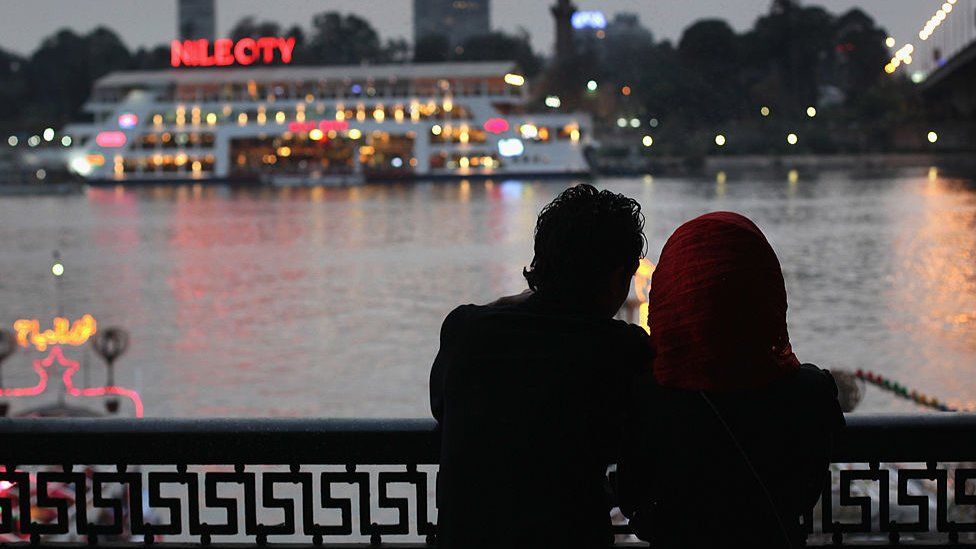Why young Arab men turn to anti-impotency drugs
In his pharmacist shop in the noteworthy neighborhood of Bab al-Shaaria in the core of Cairo, cultivator Rabea al-Habashi shows what he refers to his as "otherworldly mixes".
Mr Habashi has really established himself selling aphrodisiacs and regular sexual improvements in the Egyptian capital. For the beyond couple of years, however, he has seen an adjustment of what his clients most care about.
"Most men are currently going for the blue pills which they get from the Western organizations," he says.
As per a few investigations, youthful Arab men have been progressively utilizing medications like sildenafil (referred to industrially as Viagra), vardenafil (Levitra, Staxyn), and tadalafil (Cialis).
In spite of the proof, maybe obviously most young fellows the BBC addressed in the city of Egypt and Bahrain denied involving medication for erectile issues or in any event, knowing about them. Some even would not discuss the issue in any case, as they considered it "in spite of the ethics of society".
As a matter of fact, as per a recent report Egypt was the second most noteworthy shopper of hostile to weakness medicates per capita in the Arab world. Saudi Arabia beat the rundown.
Al-Riyadh, the Saudi paper which distributed the report, assessed at the time that Saudis burned through $1.5bn (£1.23bn; €1.43bn at the present swapping scale) every year on sexual upgrade pills. Saudi Arabia's utilization was multiple times higher than that of Russia, whose populace was then multiple times bigger, it said.
All the more as of late, the consequences of a concentrate by the Arab Journal of Urology showed that 40% of youthful Saudi male members had utilized a Viagra-like medication eventually in their lives.
Egypt actually positions exceptionally. As indicated by state measurements from 2021, deals of hostile to feebleness drugs there add up to about $127m every year, which is comparable to 2.8% of the entire Egyptian drugs market.
Male tensions
Unavoidably, some need a slice of the pie.
In 2014, an enemy of weakness drug called Al-Fankoush showed up in Egyptian supermarkets as a chocolate bar. Al-Fankoush was sold for one Egyptian pound, ($0.05; £0.04; €0.04 at the present conversion standard). Soon after it was brought to advertise, Al-Fankoush's circulation was stopped and its maker captured by security powers after neighborhood media detailed that it had been offered to youngsters.
The utilization of against ineptitude drugs is known to be more common among more established than more youthful men. In Yemen, nonetheless, information from the service of wellbeing shows they are for the most part utilized by men between the ages of 20 and 45.
Neighborhood reports propose the utilization of Viagra and Cialis as sporting party drugs has turned into a peculiarity among young fellows starting from the beginning of the nationwide conflict between the renegade Houthi development and the Saudi-moved government in 2015.
Mohamed Sfaxi, a Tunisian teacher of urology and conceptive medical procedure, focused in a meeting with the BBC that such medications were "not energizers" and were there to treat conditions that were by and large "distressing the older".
Discussing sex as of now not so no in the Arab world
In the mean time, a specialist on sexuality in the Middle East recommends youthful Arab men are going to against impotency pills in view of the overarching society.
"The explanation might allude to a greater issue youthful Arab men are confronting," makes sense of Shereen El Feki, an Egyptian-British writer and writer of Sex and the Citadel: Intimate Life in a Changing Arab World.
Answering the consequences of a significant 2017 UN-moved study on orientation correspondence in the Middle East, Ms El Feki makes sense of: "Practically all male members were unfortunate representing things to come and how they would accommodate their families. Numerous men discussed the gigantic tension of taking care of business while ladies depicted "how men are not men any longer".
"As being a man is feeling the squeeze and sexual power is woven into the way of life of manliness, there is more weight on sexual execution," she says.
Ms El Feki credits the weight on execution to a limited extent to misinterpretations and expanded assumptions made by sexual entertainment "which changes young fellows' ideas of what is 'ordinary' with regards to virility".
Verifiable discernments
While the utilization of meds for sexual requirements may be viewed as a cutting edge peculiarity in Arab social orders, the utilization of aphrodisiacs has been important for mainstream society all through Arab history.
Ibn Qayyim al-Jawziyya, a significant fourteenth Century Islamic researcher and essayist, remembered for his book series Provisions for the Hereafter an assortment of home grown recipes pointed toward upgrading sexual longing.
Shereen El Feki recommends that in Arabic custom and the Islamic legacy "ladies are seen generally as substantially more powerful and have more sexual drive than men", while men want to "work on their sexual execution to keep up".
This thought is reflected during the time of the Ottoman Empire, when author Ahmed receptacle Suleiman composed Sheik's Return To Youth in line with Sultan Selim I, who controlled from 1512 to 1520. The book was a reference book of drugs and natural recipes to treat sexual infections and invigorate male and female sexual longings.
Many years after the fact numerous youthful Arab men are as yet going to cures, and the market for them is dynamic.


Comments
Post a Comment